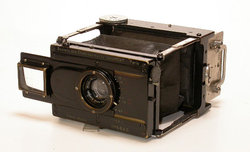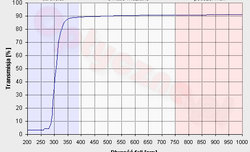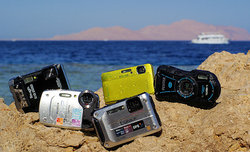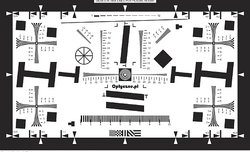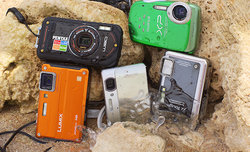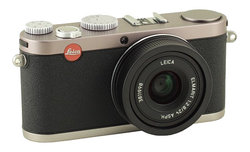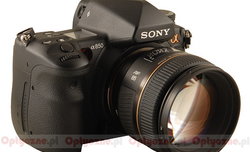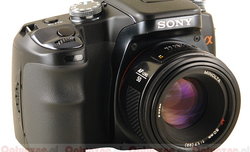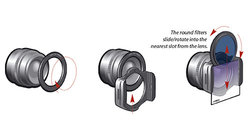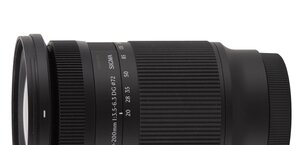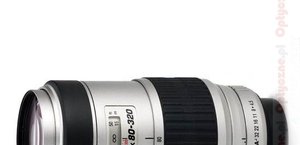We are continuing the history of Polish Optical Industries. Let’s just remind here that the first part of the article encompassed the beginning and a very quick development which was stopped all of a sudden by the onset of WWII.
We’ve already featured series of articles describing the history of such companies as Canon, Leica, Nikon, Olympus and Sony (available only in Polish on Optyczne.pl). Many people have been asking us afterwards to publish next parts, with the history of others foreign optics producers.
While discussing our tests we’ve met several times with controversial statements about the colour rendering different binoculars or lenses offer. More particularly these doubts concerned why we assess the white rendering of older Russian, Polish, Romanian and Czech products so low, including also the binoculars which were produced by Zeiss in Jena.
The holiday season is being in full swing - it means the time has come for the test of underwater cameras. It’s become even more necessary because all the models, tested by us one year ago, have had their successors launched.
When we published the Voigtlander Color Skopar 20 mm f/3.5 SL II Aspherical and the Voigtlander Ultron 40 mm f/2 SL II Aspherical lens tests once again we were questioned about the differences between resolution results presented on the Optyczne.
As we are often asked similar questions - on the forum, in mail and in comments under tests and news as well, we decided to start a FAQ section which we are going to enlarge successively. Enjoy your reading! Why do you use just one specimen of lens, camera or binoculars in your tests? Why do you test lenses on such an old body as a Canon EOS 20D? Why don’t you test vividness, colours and bokeh? Why do results, presented on the Lenstip.
Originally posted 2010-05-26 on Optyczne.pl Our last year’s test of underwater cameras has been very popular. Small wonder we decided very quickly to conduct it this year too, especially that during the last 12 months we saw the next crop of waterproof point and shoot cameras hitting our shelves (we also invite You to read our \"Underwater cameras test 2011\").
Originally posted 2009-12-16 on Optyczne.pl Even before the summer holidays of 2009 there had been rumors of a new product shown by Leica o n September the 9th, 2009. The number of nines in the date and hour of the premiere left us with basically no doubt; we were going to see a new digital rangefinder camera marked with an M9 symbol.
Originally posted 2009-11-04 on Optyczne.pl If we look at the current offer of Sony lenses and compare it to the instruments Minolta used to sell to its customers we’ll find just one lens which firstly, has the same parameters and secondly is a contemporary version or a slightly modified model of an older construction.
Ben Kim (right) - Manager of Sales & Marketing and Gold Lee (left) - Director of Sales & Marekting LensTip.com: Do you plan to introduce lenses with the 4/3 mount? Mr. Lee: We are currently adding this mount to 85mm and 8mm products.
Originally posted 2009-10-28 on Optyczne.pl Our articles series about the 50th anniversary of the Nikon F mount and the 90th anniversary of the Olympus company were ended by duels between old and new lenses of a given manufacturer.
While preparing our polarizing filters test supplement we decided to update also our UV filters test which lacked the Cokin company products. The Cokin filters system is very popular among more demanding users because it allows them more freedom of action when working with filters (especially gradiating filters).
Originally posted 2009-04-27 on Optyczne.pl After publishing our polarizing filters test new Hoya HD filters found their way to Polish shops, which, apart from a very catchy media name, were supposed to be mechanically resistant.
Originally posted 2009-07-06 on Optyczne.pl As our first articles, comparing old lenses with their modern counterparts on the occasion of the 50th anniversary of the F bayonet mount, have been very popular, both in Poland and abroad, we decided to present a similar comparison of the Olympus lenses.
Originally posted 2009-04-23 on Optyczne.pl The second part of our duels of the oldest and the youngest lenses, equipped with an F bayonet mount, will still revolve around 50 mm focal lengths so those, which are the equivalent of a classic, full frame standard.





